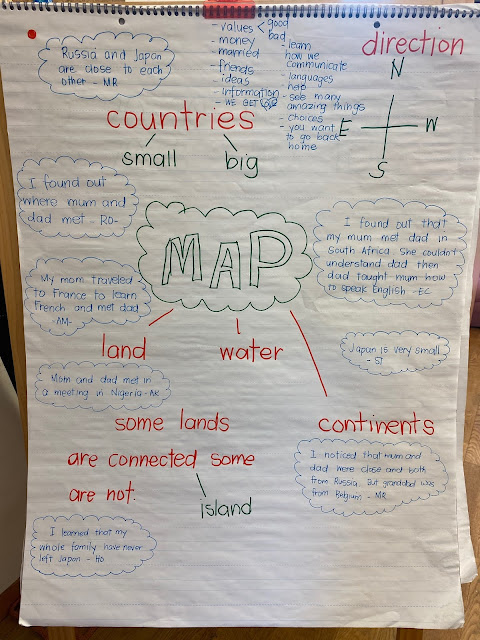The FAMILY TREE helps the Preschoolers understand the relationship of each members of their family. This representation helps them understand the roles of the mother, father, sister, brother, grandmother, grandfather, aunt, uncle, and cousins play in their life history.
The Preschoolers continued to inquire about the personal histories of their family. They worked on their own Family Tree and have started SORTING OUT information that they have gathered from the interview with their parents, discussions and their own knowledge about the members of their family.
They have also made a visual representation of who lives in our home.
Before the Golden week, they did a series mapping exercise.
- The place where they have lived or where they have travelled.
- The place where mom and dad are from
- The place where both their grandparents are from.
The Preschoolers gained basic information about what a map is for, importance of a map and what you can find in a map (written red and green).
Then, the Preschoolers talked about their personal connection, what they notice and learned about personal events that lead to change (written in blue).














Amazing family stories!!! Multicultural preschoolers!!!! 🤩👍🏻
ReplyDeleteOxana
Ms.Faye, every time I think it is impossible to impress me but you impress me again and again. I never have thought that family trees can be so different and so beautiful1!
ReplyDeleteDarya, thank you for your thoughtful comment. <3 I do what I do because I am inspired by these wonderful bunch of Preschoolers!
DeleteDarya, thank you for your thoughtful comment. <3 I do what I do because I am inspired by these wonderful bunch of Preschoolers!
Delete